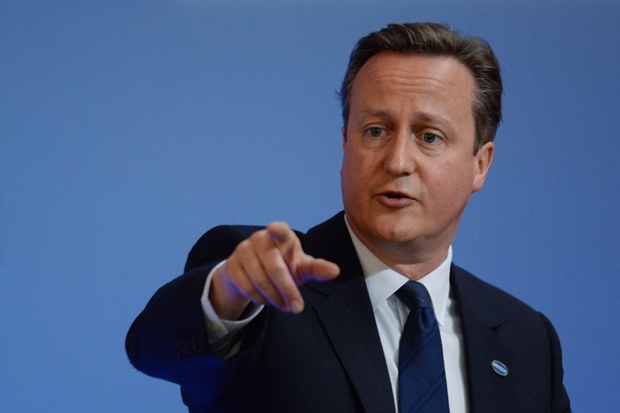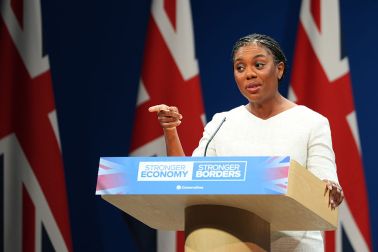When asked to write the Spectator diary, I diligently collated a list of topics to cover. But the problem is I still need to talk about Brexit. Because I’m not over it yet. I don’t mean I am still raging against Leavers and calling for another referendum. Nor do I regret we held it. Instead, by the Monday I was extolling the virtues of thinking positive for obvious economic reasons. I found reassurance in the quiet hum of my office that morning after the despondency of the weekend (moments when I stood in a corner of my bedroom, unable to control the ricochets of fury; resisting the tempestuous urge to throw eggs at Steve Hilton’s door, two streets away). Despite the raw emotion which kept flaring up in defiant constellations across the country, we were still a functioning democracy. Not a country at real war; just an abrupt ending to a long partnership. It’s not me, it’s EU, we said.
And yet, over subsequent days there were more reasons both public and personal to feel capsized, coming on top of watching the Prime Minister’s ‘friends’ campaign ferociously against him; like many I was suspicious that their aims were not wholly principled, further confirmed when Gove devastatingly turned on his campaign partner. I didn’t want to believe he was Machiavellian (I still don’t), or think that surprising statements made by his wife to me at Chequers three years before, with Gove listening, were nightmarishly coming true. Even so, by the following Wednesday, I returned to persuading fellow guests at a lunch with senior journalists and Remainers that we needed to eradicate our memories of the Leavers’ half-truths; that despite our morose outlook, it was worth remembering that the Eurosceptics had kept us out of the single currency. And if I could forgive Boris and Gove, surely they could?
On the first night of my holiday last week, I was on the defensive against the charge that we were cowards for quitting (and this coming from an Italian). But despite these outward protestations, even writing in this magazine feels like an awkward first date — because in my opinion, you brought down a good man. To the media and the electorate he was the Prime Minister. To me, he was also my sister’s husband, who loved and protected her through truly terrible times. I saw him weep over the body of his son, my nephew. A brother-in-law who didn’t send me remonstrations the day my Instagram of his bare feet made national news, but instead a very funny text. Who has been endlessly generous, whose natural prerogative is to seek out the positive; who far from chillaxing (that ridiculous jibe) is an intensely hardworking, dedicated politician, a moderniser. Who will forgive his friends even as I beg him not to.
Yes, every barb I read stings a little. But that is my concern, no one else’s. What I deplore most is the current casual denigration of his government’s achievements; a suggestion that the reign of the Cameroons was about posh boys with vanity projects. That has been encouraged by the new Prime Minister’s purge.
I am currently reading Jan Morris’s brilliant Farewell the Trumpets. Churchill knew that ‘Powers, like people, are taken at their own valuation,’ she writes. What valuation is Theresa May seeking? Of course it must be a good one. But when a newcomer seeks to diminish the previous incumbents, it adds to the perception of the establishment as out of touch and self-serving. In the last few days I have read politicians and writers alike lamenting the elite. Let Trump’s success in America be a warning. There ‘Washington’, a journalist tells me, is used as a slur, so disaffected is the population.
After all, was Jo Cox not part of this elite? What about surgeons and headmasters?’ Michael Gove has not had his finest hour this past month, but he set in motion radical prison reform to improve the lot of the truly dispossessed. (Prisons are not filled with nice girls from smart grammar schools, or posh girls from private school like me.) A swipe, however gentle, at George Osborne’s Northern Powerhouse only gives fuel to its naysayers, further deepening the sense that change will never come.
They will come for you, I am afraid one day, Prime Minister, like they did for Thatcher, Blair and Brown. You need to be emblematic of so much more than just a strong leader. So as you set out your stall for the future, in these troubled times, please loudly champion the past, set your valuation high for all — especially Westminster, as your predecessor did at his last PMQs, because that’s better for our future. That’s a Britain I will vote for with or without the EU.






Comments